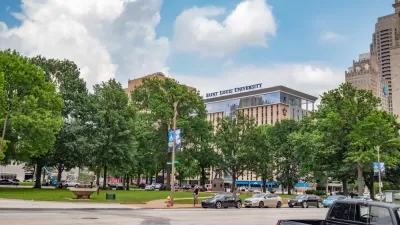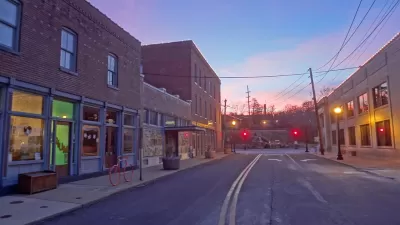Planning for the future should involve people who are going to live the future.

Ray Hartmann, founder of The Riverfront Times, writes a column to discuss a notably lack from political processes in St. Louis:
We need more young people at the table of movers and shakers. Based upon nothing more than a gut feel, I'm thinking that in growing places such as Austin, Orlando, Las Vegas, Nashville and the like, a group of people assembled to plan the future would not average nearly 56 years in age.
The context for the discussion of getting youth more involved in planning for the future is a non-planning process: the recent convening of a Board of Freeholders that will consider structural changes to the governance of the city and county. The lessons clearly apply to more planning focused processes, however:
But let's be clear about this much, regardless of age or any other demographic factors: St. Louis city and county really need to be open to change. The structural status quo is not working in either the city nor the county, and even if we're somehow able to take the baby step of ending the psychological barrier between city and county that literally can be traced back almost a century and a half ago, the freeholder process would be a significant landmark.
FULL STORY: Planning St. Louis' Future Needs to Include People who Will Live It

Planetizen Federal Action Tracker
A weekly monitor of how Trump’s orders and actions are impacting planners and planning in America.

Maui's Vacation Rental Debate Turns Ugly
Verbal attacks, misinformation campaigns and fistfights plague a high-stakes debate to convert thousands of vacation rentals into long-term housing.

Cuomo Is the Candidate of Both NIMBYs and Developers. What Gives?
In the New York City mayoral race, odd bedfellows align to preserve the housing status quo.

The Subversive Car-Free Guide to Trump's Great American Road Trip
Car-free ways to access Chicagoland’s best tourist attractions.

San Antonio and Austin are Fusing Into one Massive Megaregion
The region spanning the two central Texas cities is growing fast, posing challenges for local infrastructure and water supplies.

Charlottesville Temporarily Has No Zoning Code
A judge ordered the Virginia city to throw out its newly revised zoning code, leaving permitting for new development in legal limbo.
Urban Design for Planners 1: Software Tools
This six-course series explores essential urban design concepts using open source software and equips planners with the tools they need to participate fully in the urban design process.
Planning for Universal Design
Learn the tools for implementing Universal Design in planning regulations.
Heyer Gruel & Associates PA
JM Goldson LLC
Custer County Colorado
City of Camden Redevelopment Agency
City of Astoria
Transportation Research & Education Center (TREC) at Portland State University
Jefferson Parish Government
Camden Redevelopment Agency
City of Claremont





























